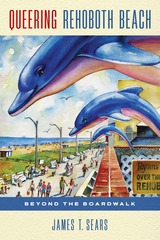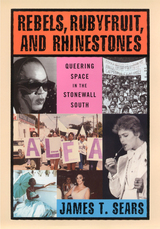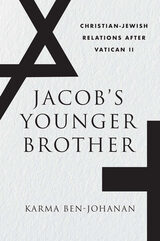2 books about Sears, James T.

Queering Rehoboth Beach
Beyond the Boardwalk
James T. Sears
Temple University Press, 2024
“Create a More Positive Rehoboth” was a decades-long goal for progress and inclusiveness in a charming beach town in southern Delaware. Rehoboth, which was established in the 19th century as a Methodist Church meeting camp, has, over time, become a thriving mecca for the LGBTQ+ community. In Queering Rehoboth Beach, historian and educator James Sears charts this significant evolution.
Sears draws upon extensive oral history accounts, archival material, and personal narratives to chronicle “the Battle for Rehoboth,” which unfolded in the late 20th century, as conservative town leaders and homeowners opposed progressive entrepreneurs and gay activists. He recounts not just the emergence of the gay and lesbian bars, dance clubs, and organizations that drew the queer community to the region, but also the efforts of local politicians and homeowners, among other groups who fought to develop and protect the traditional identity of this beach town. Moreover, issues of race, class, and gender and sexuality informed opinions as residents and visitors struggled with the AIDS crisis and the legacy of Jim Crow.
Queering Rehoboth Beach is more than just an inspiring story about a community’s resilience and determination to establish a safe space for itself in the wake of the era of Don’t Ask, Don’t Tell. It is also a terrific beach read.
Sears draws upon extensive oral history accounts, archival material, and personal narratives to chronicle “the Battle for Rehoboth,” which unfolded in the late 20th century, as conservative town leaders and homeowners opposed progressive entrepreneurs and gay activists. He recounts not just the emergence of the gay and lesbian bars, dance clubs, and organizations that drew the queer community to the region, but also the efforts of local politicians and homeowners, among other groups who fought to develop and protect the traditional identity of this beach town. Moreover, issues of race, class, and gender and sexuality informed opinions as residents and visitors struggled with the AIDS crisis and the legacy of Jim Crow.
Queering Rehoboth Beach is more than just an inspiring story about a community’s resilience and determination to establish a safe space for itself in the wake of the era of Don’t Ask, Don’t Tell. It is also a terrific beach read.
[more]

Rebels, Rubyfruit, and Rhinestones
Queering Space in the Stonewall South
Sears, James T.
Rutgers University Press, 2001
While Scarlett O'Hara may resemble a drag queen, and Mardi Gras inspires more camp than a gay pride parade, the American South also boasts a rich, authentic and transgressive gay and lesbian history. In this chatty, free-ranging cultural survey, Sears (Growing Up Gay in the South) presents a vivid kaleidoscope of the mores and political activities of many gay Southerners following the 1969 Stonewall riots and leading up to the 1979 march on Washington. Sears unspools this history through portraits of activists and community organizers including Merril Mushroom, Jack Nichols, Lige Clark, Vicki Gabriner, Minnie Bruce Pratt and Sgt. Leonard Matlovitch who helped shape the social and political climate below the Mason Dixon line and often in the rest of the country. While giving a nod to historic events like Anita Bryant's Save Our Children campaign, Sears focuses more closely on obscure but important local political events, like the founding of the lesbian journal Sinister Wisdom, the emergence of the Atlanta Lesbian Feminist Alliance and community response to a deadly firebombing that killed 31 patrons in a New Orleans bar in the mid-1970s. Sears's multifaceted approach pays off when he sketches such relatively unknown players as comedian Ray Bourbon and radical fairy Faygele ben Miriam, and he conveys well the complexity and intensity of the political activity of the decade. While not as historically conclusive or theoretically astute as John Howard's masterful Men Like That (2000), Sears provides a panoply of emotionally riveting snapshots that aptly portray Southern gay experience in the 1970s. B&w photos.
[more]
READERS
Browse our collection.
PUBLISHERS
See BiblioVault's publisher services.
STUDENT SERVICES
Files for college accessibility offices.
UChicago Accessibility Resources
home | accessibility | search | about | contact us
BiblioVault ® 2001 - 2024
The University of Chicago Press









